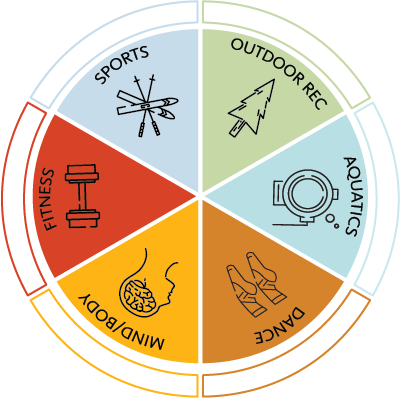HHS 231 Lifetime Fitness for Health
Develop personal awareness and strategies for your physical and mental health during the transition to college and throughout your life.
The Baccalaureate Core fitness requirement for students to graduate from Oregon State University consists of two components: A Lifetime Fitness for Health course (HHS 231) and a Physical Activity Course (PAC) of their choice. HHS 231 serves as a lecture course (2 credits), providing essential skills and strategies to promote lifelong health and well-being.
What is our focus?
Although we are designated a ‘fitness’ skill course, we do much, much more than that. HHS 231 promotes the health and well-being of our OSU students in four main areas:
- Healthy behavior change
- Physical activity promotion
- Nutrition education
- Mental health (this includes sleep and stress management)
HHS 231 is designed to facilitate the development of positive health behaviors in physical activity, nutrition and mental health through lectures, discussions, assignments and personal reflections. This course will teach you self-awareness and strategies to initiate these behaviors and creates the foundation for healthy habits you can continue to develop throughout your time at Oregon State and beyond.
HHS 231 provides up-to-date and relevant health and wellness information, as well as practical strategies to implement positive behavior change in physical activity, nutrition, mental health,and stress management throughout college and across the lifespan.
Oregon State has over 200 Physical Activity Courses (PAC)

You can take any PAC course for your third Fitness Skill Bacc core credit.
Visit PAC courses to see offerings and modalities.
Collaborations
To foster student success in adopting and sustaining health behaviors aligned with your personal interests and needs, HHS 231 intentionally intersects and collaborates with many programs and resources on campus that support positive health behaviors.
Collaborative example
Students asked for more dialogue on mental health, and we listened.
In 2018, we added a more robust section on mental health to our HHS 231 curriculum. Over the last four years, HHS 231 has partnered with Counseling and Psychological Services (CAPS) to better serve students through integrating curriculum and assignments on mental health.
We have helped over 7,000 students complete the “Recognizing students in distress” module who would not otherwise have completed it. The module’s focus is on helping yourself or a friend through a mental health issue while sharing resources for students.
Other collaborations are with:
- Student Health Services
- Physical Activity Courses (PAC) program
- Healthy Campus Initiative
- Academic Success Center
- Dixon Recreation Center
- Human Service Resource Center (HSRC)
- University Housing and Dining
- MU Retail Food Service
Special examination for waiver or credit
A Special Examination for Waiver or Credit (Special Exam) is offered for those students who wish to demonstrate their understanding of the material covered in the course in place of taking the entire course of lectures and labs.
Details about how to take the exam are available on the HHS 231 Special Examination page.
What students are saying about HHS 231
“I learned how to effectively help someone who is struggling mentally. Something I had to put to use shortly after learning it.”
“I learned that I can make a change in my own lifestyle if I put in the work for it. I changed multiple parts of my well-being into action, and I am proud of that.”
“One thing I learned about myself is that I am able to make changes to my lifestyle a lot easier than I thought I would be able to because of the tools I have learned from this class.”
Campus resources
There are many resources at Oregon State to help you with your physical and mental health and well-being. See OSU Experience Health and Well-Being for detailed resources.
Additional information
Additional information (for example, section, meeting time, location and instructor) for any HHS courses you have enrolled in can be found by logging into Canvas.